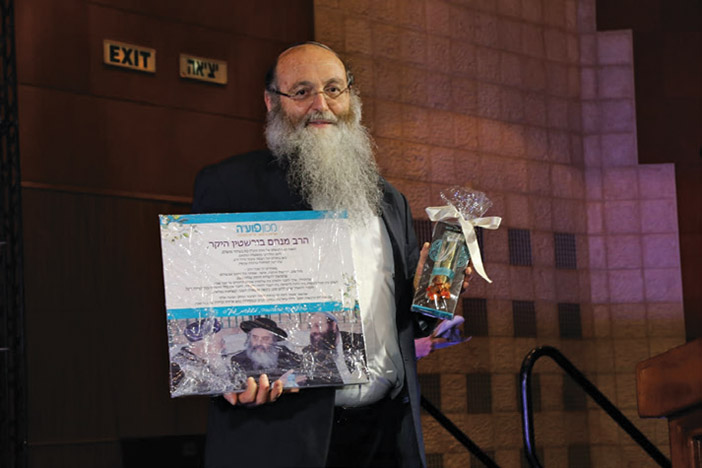

(Courtesy of PUAH) Before Prof. Sheli Mazaki, director of Perinatal Unit and High-Risk Pregnancy Department at Sheba Medical Center, began his presentation at PUAH’s recent annual Jerusalem Conference, he paused to survey the crowd of over 1,400 women filling the large Binyanei HaUma hall and commented, “I’ve been to many different conferences over the years, and I don’t remember any with such a huge attendance!”
Professionals working in the field of fertility—doctors, nurses, midwives, doulas, ultrasound technicians, kallah teachers and more—came from across the country to attend the day-long conference this past Sunday, June 3, which featured world experts in the reproductive medicine field as well as PUAH’s own renowned rabbinic experts. Dozens of informational booths and product displays dotted the wide lobby, where women milled about, learning, listening and talking with each other. But the real show was happening inside the hall, where participants eagerly listened to the world-class lineup of presenters.
The cutting-edge topics included: fetal intrauterine corrective surgery; identifying signs of abnormal development in adolescents; post-trauma (PTSD) after childbirth; how to stop irregular bleeding; identifying genetic abnormalities during pregnancy; coordinating expectations in marriage; hormonal therapy for relief of menopausal symptoms, and more. There were two fascinating panel discussions on the topics of motherhood at an older age and non-invasive prenatal screenings.
Aside from the medical and halachic presentations, Rabbanit Yemima Mizrachi spoke on the topic of women’s power to build their homes, and Justice Minister Ayelet Shaked addressed the crowd, describing how inspired she was by the strength of women to accomplish whatever they set their minds to do. “And there is no work more important than helping to bring babies into the world!” she said.
Dr. Yuval Gialchinsky’s presentation on developments in the field of fetal intrauterine corrective surgery—the newest frontier in medical technology—really brought the house down. He showed pictures of fetoscopic surgeries performed in utero, in which potentially life-threatening conditions were neutralized and corrected before the baby was born. For example, in one such case, a 30-week ultrasound revealed a growth on one of the fetus’ lungs, which was pushing the heart aside. If left alone, the heart would soon stop working. In the past, the only option would be to induce birth prematurely and quickly operate on the lung—which might save the baby’s life but would leave him without a lung. With this new technology, Dr. Gialchinksky’s team operated on the fetus in utero, removing the growth. After a few weeks the heart returned to its normal position and the lung also began developing normally. The baby was born healthy.
Rav Menachem Burstein, founder of PUAH, expressed his gratitude for the large turnout and the overwhelmingly positive feedback from participants. “It’s our privilege to be the one provide this opportunity and to serve as the bridge between all of these women eager to learn and all of the new medical information out there.”










